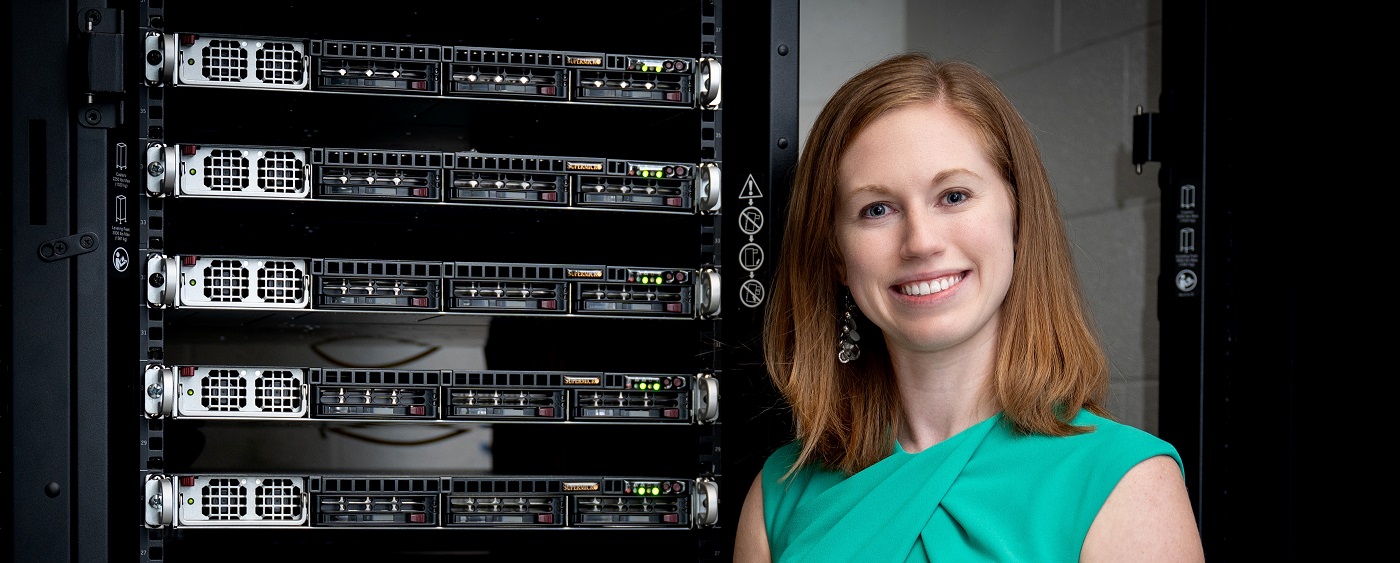Amanda Lietz, assistant professor in the Department of Nuclear Engineering, received a Department of Energy (DOE) Office of Science Early Career Research Program award for her project “Incorporating Kinetic Effects in Fluid Models of Low Temperature Plasmas via Machine Learning.”
Lietz will receive $900,000 over five years for the project. She and her research team aim to develop a new computational method for low temperature plasmas modeling that relies on machine learning to improve accuracy and speed.
Modeling plasmas is challenging. One method, particle-in-cell Monte Carlo collision simulations, is the most commonly used high-fidelity technique. It is expensive and often slow. Another widely used method relies more heavily on approximation, and while it is faster and more practical, models are not as accurate. Lietz and her team want to bridge that gap.
“This will allow us to really improve our underlying methods, the computational methods we use every day,” she said. “And I expect the results will touch every area of the work that we do in my research group. This is a really different way of looking at the problem of modeling low temperature plasmas.”
Lietz said the research will better inform engineering for applications that use plasmas, including manufacturing of computer chips, cancer treatments and magnetic confinement fusion.
“It is an idea that will allow us to have impact across many projects and many years into the future and lay the groundwork for some very good fundamental science in this area,” she said.
Cameron Wagoner, graduate research assistant, generated the critical preliminary data for this work and will continue working on the project.
The DOE awarded 91 researchers across the country a combined $138 million. The DOE’s Office of Science is the nation’s largest supporter of basic research in the physical sciences. Early career researchers may apply to one of eight Office of Science program offices: Advanced Scientific Computing Research; Biological and Environmental Research; Basic Energy Sciences; Fusion Energy Sciences; High Energy Physics; Nuclear Physics; Accelerator R&D and Production; and Isotope R&D and Production.
Lietz’s research was selected for funding by the Office of Fusion Energy Sciences.

